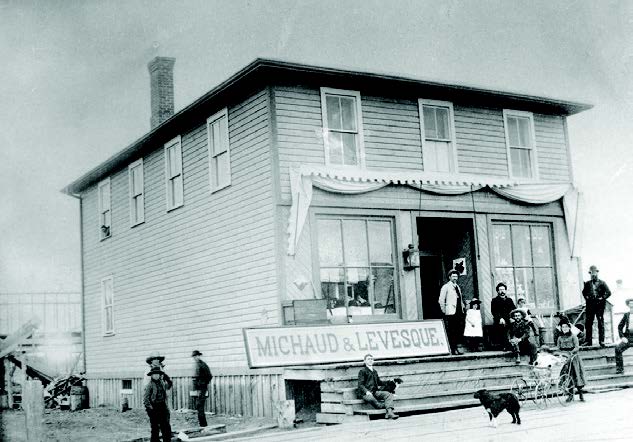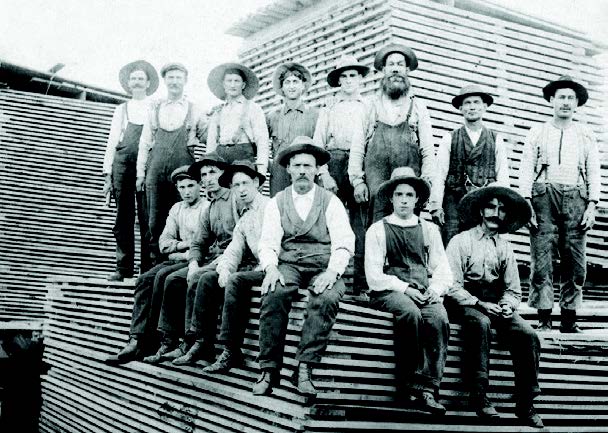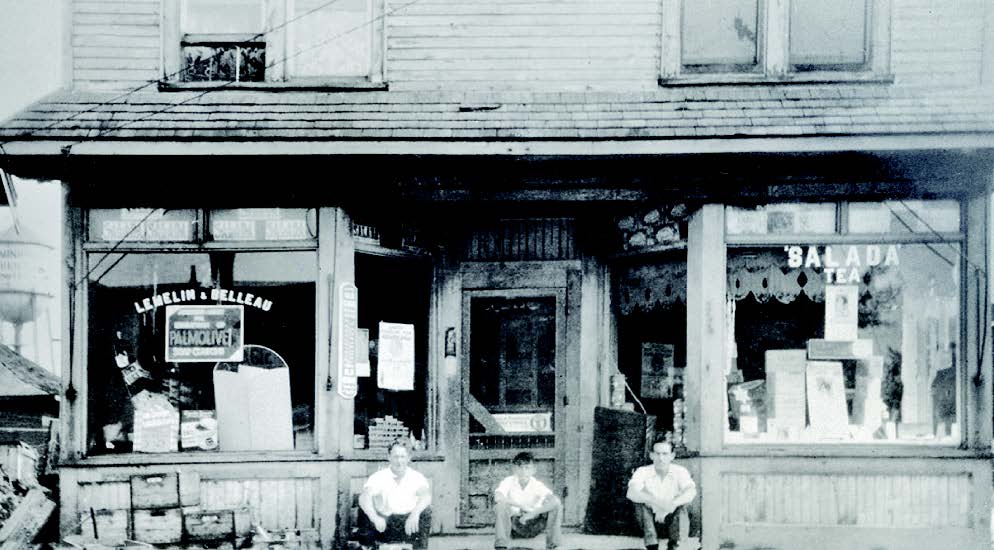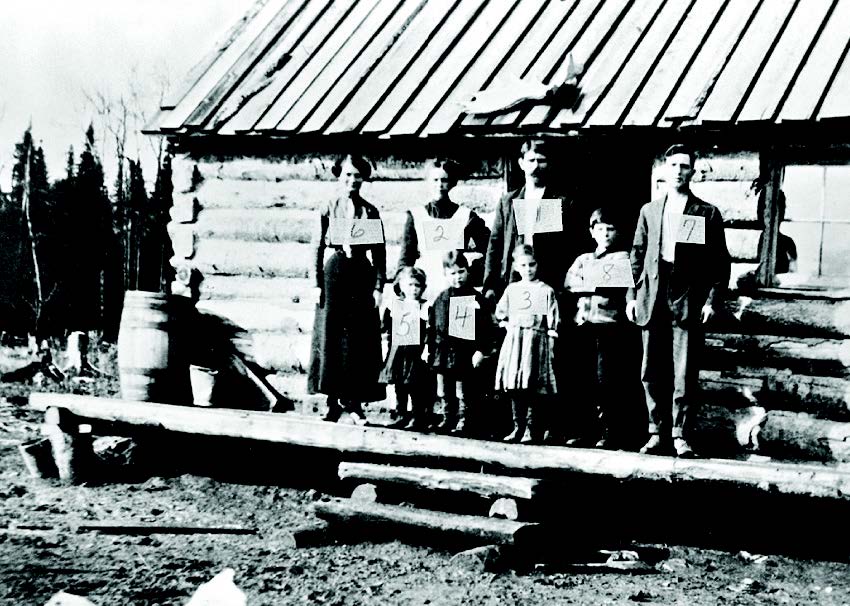1867: Confédération canadienne
1880: Peuplement du Nouvel-Ontario
C’est une époque où les foyers de peuplement canadiens‑français sont géographiquement dispersés et vivent une forte croissance géographique. Urbains ou ruraux, ils participent au progrès de l’économie ontarienne en expansion.
Les réseaux de parenté, les liens entre les élites culturelles et politiques, les relations associatives et les nombreux journaux font en sorte que les francophones entretiennent un sentiment d’appartenance au Canada français. Ce sentiment est fondé sur l’histoire, la langue, la foi et les aspirations communes.
Les migrants canadiens-français et les immigrants d’origine diverses
s’établissent le long des voies ferrées vers les villes manufacturières et
les régions agricoles de l’Est et du Centre‑Sud. À partir de 1880,
ils pénètrent dans les régions du Nouvel-Ontario où les industries forestières et minières prédominent, mais où l’agriculture occupe une place prépondérante. Le clergé canadien-français poursuit ses efforts de colonisation agricole, l’organise et en fait la promotion auprès de la population.
Les chefs de file canadiens-français partagent des vues nationalistes et anti-impérialistes. Ils s’unissent pour contrer les organismes fortement hostiles aux catholiques et aux francophones en Ontario. Ils demandent que les Canadiens français soient reconnus comme peuple fondateur au même titre que les Canadiens anglais. En outre, ils exigent la reconnaissance de leurs droits religieux et scolaires.
1867: Canadian Confederation
1880: Settlement of New Ontario
This was a time when French-Canadian settlement centres were scattered across the territory and populations expanded rapidly. Whether urban or rural, they took part in the development of an Ontario economy in full expansion.
Through family networks, involvement in associations, connections among the political and cultural elites, and an array of newspapers, Francophones maintained a sense of belonging to French Canada. This sense of belonging was based on common history, language, faith and aspirations.
French-Canadian migrants, together with immigrants from many other countries, established the manufacturing towns and agricultural centres of eastern and south-central Ontario along the railways. From 1880 they expanded into New Ontario, where forestry and mining were the primary industries, although agriculture developed as well. French-Canadian clergy continued their efforts to encourage agricultural expansion, organizing and promoting agricultural settlement.
French-Canadian leaders shared nationalist and anti-imperialist perspectives. They united to oppose forces strongly hostile to Ontario Roman Catholics and Francophones. They demanded that French Canadians, similarly to English Canadians, be recognized as a founding people. Furthermore, they demanded the recognition of religious and educational rights for French Canadians.






